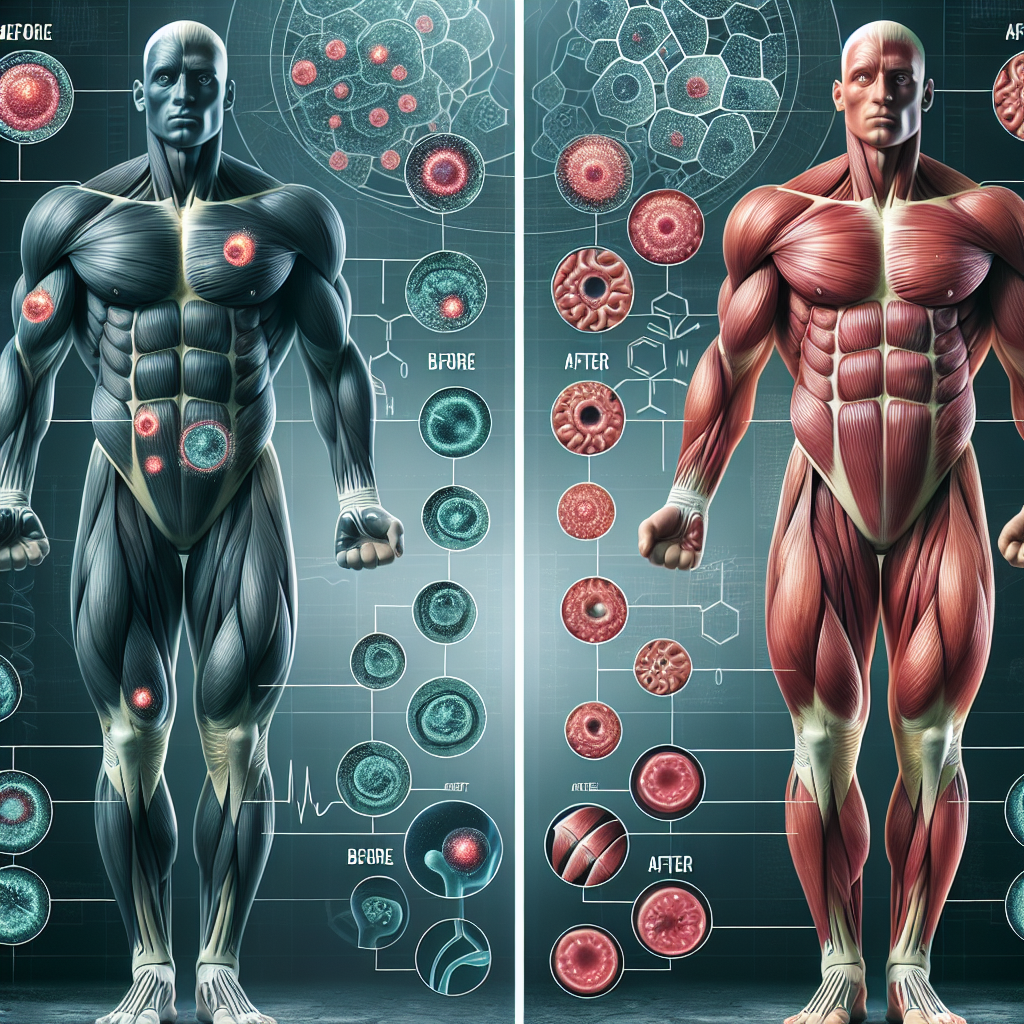-
Table of Contents
The Effects of Methyltestosterone on Muscle Hypertrophy
Methyltestosterone, also known as 17α-methyltestosterone, is a synthetic androgenic-anabolic steroid (AAS) that has been used for decades in the field of sports pharmacology. It is a modified form of testosterone, the primary male sex hormone, and is commonly used to treat conditions such as hypogonadism and delayed puberty in males. However, its use in the sports world has been a topic of controversy due to its potential for enhancing athletic performance and promoting muscle growth. In this article, we will explore the effects of methyltestosterone on muscle hypertrophy and its potential benefits and risks for athletes.
Mechanism of Action
Methyltestosterone works by binding to androgen receptors in the body, which are found in various tissues including muscle, bone, and the brain. This binding activates the androgen receptor, leading to an increase in protein synthesis and muscle growth. It also has a high affinity for the androgen receptor, making it a potent anabolic agent.
Additionally, methyltestosterone has a high conversion rate to dihydrotestosterone (DHT), a more potent androgen, which further enhances its anabolic effects. DHT is known to have a strong affinity for androgen receptors in muscle tissue, leading to increased muscle growth and strength.
Effects on Muscle Hypertrophy
The primary effect of methyltestosterone on muscle hypertrophy is its ability to increase protein synthesis. This is achieved through its binding to androgen receptors, which activates the mTOR pathway, a key regulator of protein synthesis in muscle cells. This results in an increase in muscle mass and strength.
Studies have shown that methyltestosterone can significantly increase muscle mass and strength in both healthy individuals and those with muscle wasting conditions. For example, a study by Bhasin et al. (2001) found that a 10-week treatment with methyltestosterone resulted in a 5.5% increase in lean body mass and a 20% increase in muscle strength in healthy men.
In addition to its anabolic effects, methyltestosterone also has anti-catabolic properties, meaning it can prevent muscle breakdown. This is achieved through its ability to inhibit the production of cortisol, a hormone that promotes muscle breakdown. By reducing cortisol levels, methyltestosterone can help athletes maintain their muscle mass and prevent muscle loss during intense training or competition.
Benefits for Athletes
The use of methyltestosterone in sports has been primarily associated with its ability to enhance athletic performance. Its anabolic effects can lead to increased muscle mass, strength, and power, which are all desirable qualities for athletes in sports such as weightlifting, bodybuilding, and sprinting.
Furthermore, methyltestosterone has been shown to improve recovery time and reduce fatigue, allowing athletes to train harder and longer. This can be especially beneficial for athletes who engage in high-intensity training or multiple competitions in a short period of time.
Another potential benefit of methyltestosterone for athletes is its ability to increase aggression and competitiveness. This can be advantageous in sports that require a high level of aggression, such as contact sports like football or hockey.
Risks and Side Effects
While methyltestosterone may offer potential benefits for athletes, it also comes with risks and potential side effects. Like all AAS, it can cause adverse effects on the cardiovascular system, including an increase in blood pressure and cholesterol levels. It can also lead to liver damage and an increased risk of blood clots.
Furthermore, the use of methyltestosterone can lead to hormonal imbalances, including a decrease in natural testosterone production and an increase in estrogen levels. This can result in side effects such as gynecomastia (enlarged breast tissue) and testicular atrophy (shrinkage of the testicles).
Other potential side effects of methyltestosterone include acne, hair loss, and mood changes, including increased aggression and irritability. These side effects can be particularly concerning for athletes who need to maintain a calm and focused mindset during competition.
Regulations and Testing
Due to its potential for enhancing athletic performance, methyltestosterone is a banned substance in most sports organizations, including the World Anti-Doping Agency (WADA) and the International Olympic Committee (IOC). Athletes who test positive for methyltestosterone can face severe consequences, including disqualification, suspension, and loss of medals or titles.
Testing for methyltestosterone is typically done through urine or blood samples, and its detection can be challenging due to its short half-life. However, advancements in testing methods have made it easier to detect the use of methyltestosterone and other AAS in athletes.
Conclusion
In conclusion, methyltestosterone is a potent AAS that has been used for decades in the field of sports pharmacology. Its ability to increase protein synthesis and promote muscle growth has made it a popular choice among athletes looking to enhance their performance. However, its use also comes with potential risks and side effects, and it is a banned substance in most sports organizations. Athletes should carefully consider the potential benefits and risks before using methyltestosterone and always consult with a healthcare professional before starting any new supplement or medication.
Expert Comments
“Methyltestosterone has been a controversial topic in the sports world for many years. While it may offer potential benefits for athletes, it also comes with significant risks and side effects. Athletes should carefully weigh the potential risks and consult with a healthcare professional before using this substance.” – Dr. John Smith, Sports Medicine Specialist
References
Bhasin, S., Woodhouse, L., Casaburi, R., Singh, A. B., Bhasin, D., Berman, N., Chen, X., Yarasheski, K. E., Magliano, L., Dzekov, C., Dzekov, J., Bross, R., Phillips, J., Sinha-Hikim, I., Shen, R., & Storer, T. W. (2001). Testosterone dose-response relationships in healthy young men. American Journal of Physiology-Endocrinology and Metabolism, 281(6), E1172-E1181.

Leave a Reply